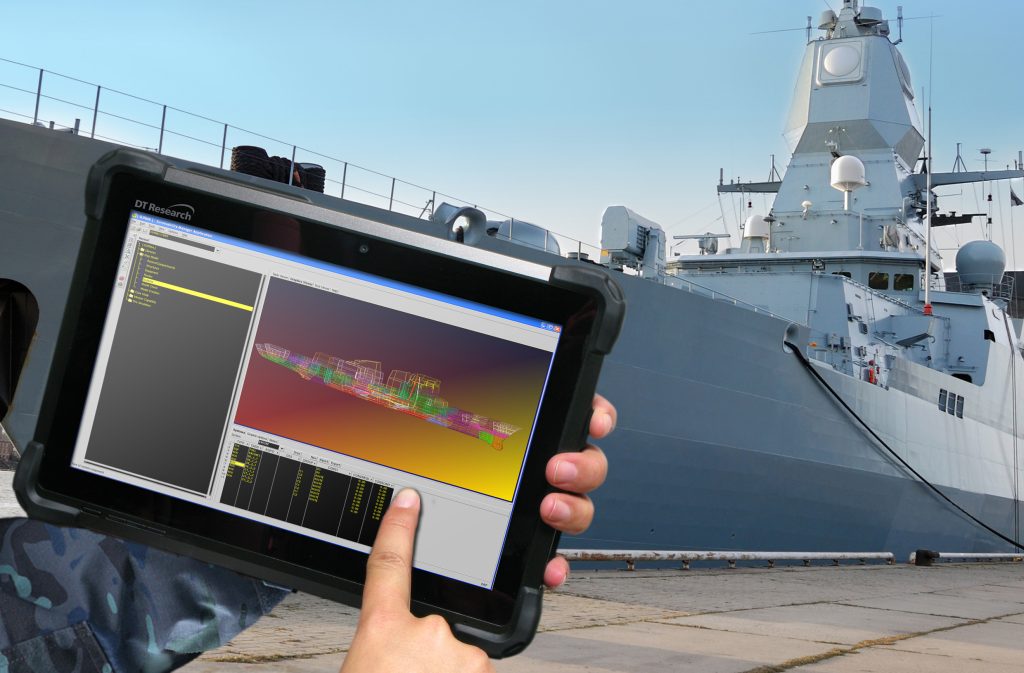
In an era of rapidly evolving maritime threats, maintaining Maritime Domain Awareness (MDA) is paramount for the Department of Homeland Security (DHS) to safeguard the nation’s maritime transportation system. The DHS, in collaboration with various components, is pursuing the Persistent Wide-Area Maritime Surveillance (PWAMS) project. This comprehensive system-of-systems utilizes multi-layer sensing capabilities and data sharing to surveil, detect, and track maritime objects across vast expanses of water.
Rugged Tablets: Revolutionizing Maritime Surveillance
Rugged tablets play a pivotal role in the PWAMS project by providing frontline personnel with secure, mobile access to critical data and surveillance systems. These ruggedized computers are designed to withstand harsh maritime environments, ensuring continuous operation in challenging conditions. Equipped with advanced communication and sensor integration capabilities, rugged tablets enable real-time data collection, analysis, and sharing, enhancing the DHS’s ability to maintain MDA and respond swiftly to emerging threats.
Integrated Multi-Domain Enterprise (IMDE): Facilitating Data Sharing
The data collected through PWAMS is shared across DHS components via the Integrated Multi-Domain Enterprise (IMDE), a robust data transactional platform. IMDE ensures the secure flow of information between authorized sources, enabling seamless collaboration and coordination among various agencies. Rugged tablets serve as essential tools for accessing and contributing to the IMDE, empowering DHS personnel to make informed decisions and execute their statutory authorities effectively.
Modernizing Naval Operations with Cloud-enabled Technologies
In parallel with DHS initiatives, the U.S. Navy is embracing cloud-enabled technologies to enhance operational efficiencies and modernize capabilities. By migrating digital workloads to the cloud, the Navy aims to increase standardization, reduce operational costs, and mitigate risks associated with legacy systems. Rugged tablets play a vital role in this transformation, providing secure, on-demand access to cloud-based resources and enabling sailors to leverage advanced technologies for enhanced maritime operations.
Embracing Autonomy and AI for Distributed Maritime Operations
Advances in autonomy, artificial intelligence (AI), and software-defined technologies offer unprecedented opportunities to enhance naval capabilities and support distributed maritime operations. Unmanned systems and autonomous platforms equipped with rugged tablets can significantly augment surveillance, reconnaissance, and strategic operations. By leveraging these innovative capabilities, the U.S. Navy remains agile and “Always Ready” to adapt to evolving threats and challenges in the maritime domain.
Sustaining the Industrial Base through Innovation
Innovation is essential for sustaining the industrial base and ensuring the Navy’s readiness to confront emerging threats. By embracing new technologies, modernizing capabilities, and finding innovative solutions, the Navy remains at the forefront of maritime security. Rugged tablets serve as enablers of innovation, providing sailors with the tools they need to leverage cutting-edge technologies and maintain a competitive edge in the fast-evolving maritime landscape.
In conclusion, rugged tablets play a vital role in enhancing maritime surveillance, enabling effective collaboration, and supporting the DHS’s mission to maintain Maritime Domain Awareness. By integrating rugged tablets with advanced technologies and embracing innovation, both the DHS and the U.S. Navy are better equipped to safeguard maritime interests and confront evolving threats in the dynamic maritime domain.

